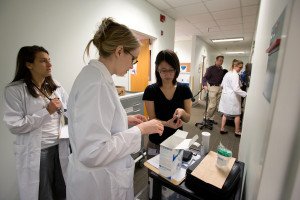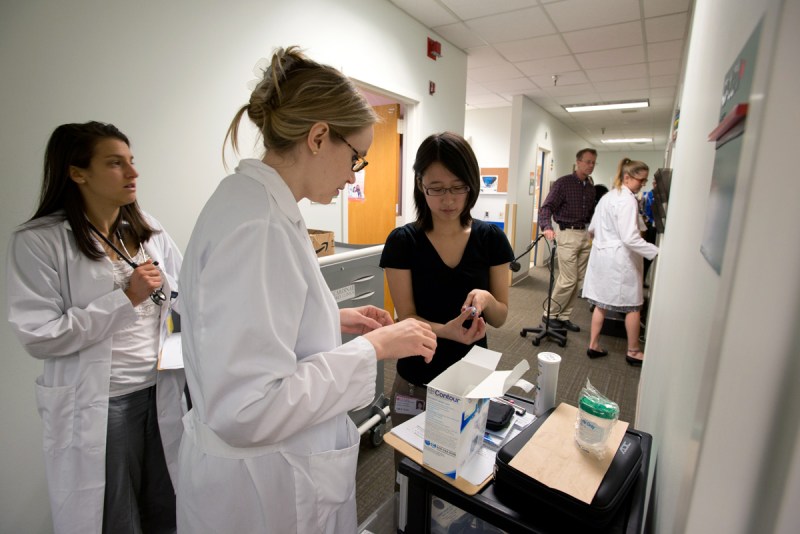The Arbor Free Clinic, a School of Medicine-operated clinic that provides basic health care services to underserved local populations for free, will move from its current Menlo Park location to Hoover Pavilion next month, in a shift driven by better access to University medical labs and the renovation of the clinic’s current site.

According to clinic manager Kaylin Pennington ’09, the decision to move from the Menlo Park Veteran Affairs Medical Center, which has hosted the weekly clinic for the past 19 years, came only after soliciting the opinion of existing patients, many of who are Menlo Park residents. While a survey of waiting room patients last fall found no sustained concern about the prospective relocation, Pennington noted that the decision to go forward with the transition has necessitated further outreach.
“Now that we have a move date we’re trying to figure out how to spread the word to our community partners [and] how to make sure the patients are aware about the change in location,” Pennington said. “We definitely don’t want [the clinic] to become less accessible.”
Potential for growth
Since reaching the decision to change location last fall, the clinic’s staff has adopted a “work backwards” policy to ensure a smooth transition for its patients while also looking to recruit more doctors and medical students to volunteer at the clinic.
With an average weekly caseload for the clinic staff of about 15 patients operating on a first-come, first-serve basis, clinic co-director Lars Osterberg expressed optimism that the new clinic may be able to accommodate more patients if recruitment efforts conclude favorably.
“We actually have patients with chronic medical problems like diabetes and high blood pressure who don’t have a regular doctor — so we actually serve as their primary health care provider,” Osterberg said. “We also try to get our patients engaged with the community…[We] have in place a referrals program for [long-term] care.”
Since the clinic does not have the requisite funding, facilities or staff to deliver ongoing care to its patients, Pennington and her co-managers are in the process of building a referrals program that can connect patients with long-term support, a particularly important effort for patients with a history of medical issues.
Beyond the relocation
After the relocation, the clinic’s staff will turn their efforts to equipping and running a larger clinical area. The new facility will have five additional fully equipped rooms compared to the old clinic, and will offer two rooms dedicated to health education in addition to a women’s clinic.
According to Osterberg, constrained funding will necessitate greater resourcefulness from clinic staff. University donations will help fund labs, pathology services and plane field x-rays while recruitment efforts may result in more doctor and student volunteers.
“Over the years we’ve developed a lot of services,” Osterberg said. “We started off as a Band-Aid clinic and now we have so many sub-specialties…For a free clinic I think that is really unique.”
Pennington framed the clinic’s efforts to serve underserved citizens — who may not have access to health insurance or a permanent healthcare provider – through a range of health care areas, including cardiology, dermatology, mental health, orthopedic health, ophthalmology, neurology and women’s health, as allowing volunteers to apply their expertise in a socially beneficial way.
“I really believe that health care is a human right,” Pennington said. “The social effort is really important to me and it’s a privilege to be a part of it.”
